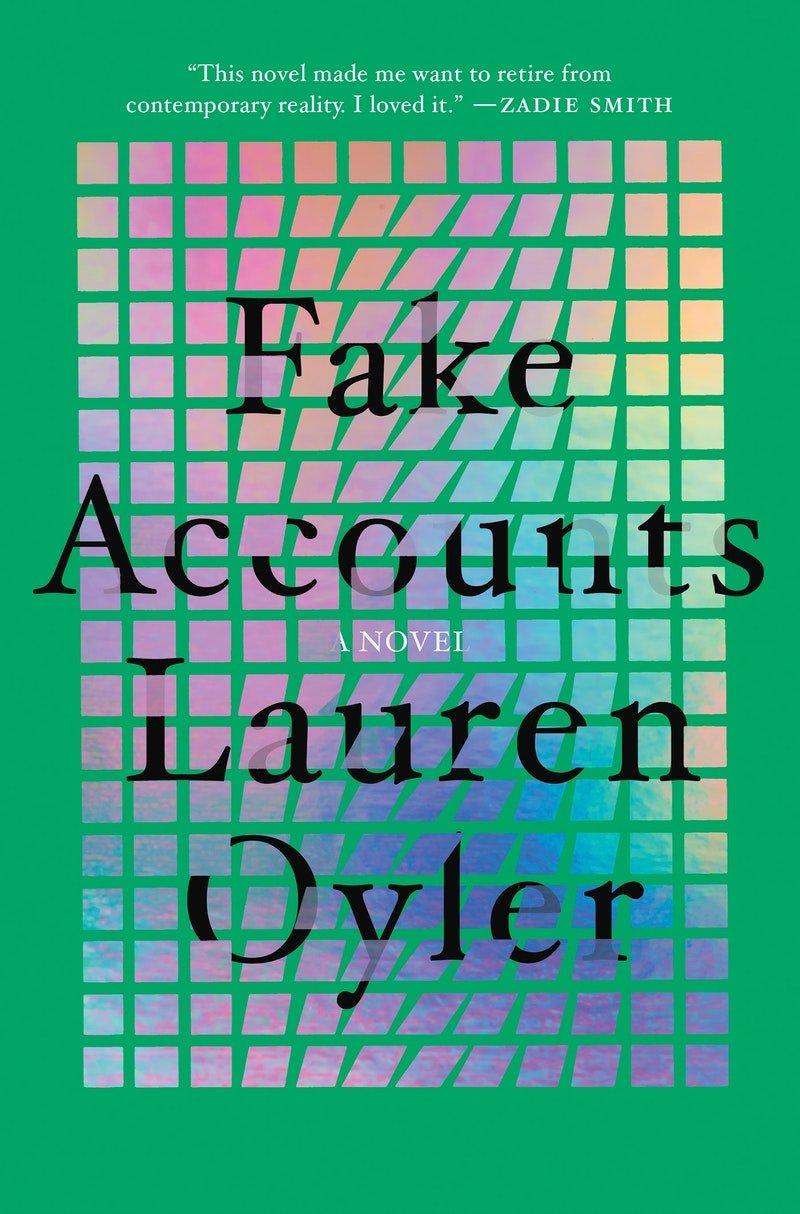A Tale of Two Catfish: Lauren Oyler’s Fake Accounts
The debut novel, sugar-dusted with zeitgeist signifiers, satirizes the 21st-century urban bourgeoisie – but who is the joke actually on?
The debut novel, sugar-dusted with zeitgeist signifiers, satirizes the 21st-century urban bourgeoisie – but who is the joke actually on?

Lauren Oyler’s Fake Accounts (2021) – a novel set mostly in Berlin and Brooklyn, and peopled by the young adults who drift between them – begins with a contemporary update of Charles Dickens’s A Tale of Two Cities (1859). The year is 2016. Donald Trump has just defeated Hillary Clinton. It seems like ‘the world [is] ending, or would begin to end soon, if not by exponential environmental catastrophe then by some combination of nuclear war, the American two-party system, patriarchy …’ The question isn’t whether these are the best or worst of times, but whether they’re the worst or plain bad.
Distinguishing bad from worst – deciding whether this is hell or merely purgatory – is very much the subject here. Oyler’s unnamed protagonist, a young, fretful New Yorker, introduces herself immediately after the aforementioned list with the disclaimer: ‘I didn’t believe all this, necessarily.’ She’s afflicted with a kind of terminal self-awareness – ‘I would probably insult you in bed and call it feminist’ – that should ring true to anyone who’s attended a liberal arts college in the last ten years. As such, she teeters on the verge of cliché, though many clichés do have basis in fact. Naturally, she’s a blogger.
The narrator’s boyfriend, Felix, makes her look saintly by comparison. While snooping on his phone late one night, she learns Felix is an online crank, prone to conspiracy theories about Jews blowing up the Twin Towers on 9/11. We’re 20 pages into what’s shaping up to be a lively story about some nourishing, if much-chewed, themes of US society in the years following Barack Obama’s presidency, starring a character who, if by her own admission a little grating, is at least less awful than everybody else.

Then, suddenly and disappointingly, we find ourselves in a different kind of novel. Right when the narrator is preparing to break up with Felix, she hears that he has died. More puzzled than devastated, and helped by the least plausible cash infusion this side of that other Dickens tale, Great Expectations (1861), she decides to move to Berlin to make fake accounts for herself on OKCupid and write a book about it. Without the presence of her crackpot boyfriend, we see these things for what they really are: hasty ways of injecting topicality into a story that might otherwise be too crabbed and claustrophobic to bear. To borrow the narrator’s apophatic style: you haven’t read this novel before, but you haven’t not read this novel before.
Fake Accounts resembles the kind of hip Berlin hostel the narrator frequents: it’s eccentric in a thin, unchallenging way designed to appeal to an under-slept, phone-addled clientele. What pleasures it affords come mostly from watching Oyler, a stiletto-sharp critic of others’ fiction, trying to game a system she’s studied for years. Every sentence comes fully insured; every opinion is carefully hedged. (‘I didn’t believe all this, necessarily.’) The narrator is several notches less accomplished than Oyler herself and thus several notches more relatable. There is something to be said for Fake Accounts as a satire of the 21st-century urban haute bourgeoisie, down to the fish-in-a-barrel Brooklyn yoga moms. At least Oyler remembers to throw her narrator in the barrel: ‘The weekly 75-minute session of possibly culturally appropriative contortion,’ we’re told, ‘was the most white-woman-in-Brooklyn thing I did. It is OK to do yoga, I told myself, but I never really believed it.’ I’m reminded of a snippet from Oyler’s review of Jia Tolentino’s Trick Mirror (2020) for the London Review of Books: ‘That you can, as we say on the internet, just not occurs to Tolentino as a theoretical option but not an actual one.’ That’s partly the joke here: our narrator indulges in theoretical hand-waving to avoid making actual decisions. She’s supposed to be a little bit awful.
To understand the limitations of this approach, however, consider pages 167 to 207 of Fake Accounts, presented as a selection from the narrator’s novel-in-progress and a scathing send-up of contemporary autofiction as practiced by Jenny Offill or Olivia Laing, replete with comma-less, one-sentence paragraphs and slack, hand-wavey anecdotes. ‘What’s amazing about this structure,’ the narrator brags, ‘is that you can just dump any material you have in here and leave it up to the reader to connect it to the rest of the work.’ A few anecdotes later: ‘I’m not very good at this structure. I keep going on too long.’
It’s an accurate parody, which is to say, it’s a slog. When a writer feels the need to apologize for 40 pages of her own book, you have to wonder who the joke’s on. Even if we set that aside, this section has more in common with the rest of Fake Accounts than perhaps intended. Oyler writes nervier prose than Offill or Laing or Tolentino, but her final product is a stylistically timid menu of au courant topics – authenticity, sex, globalization, privilege – sugar-dusted with zeitgeisty signifiers, the better to brighten the critical-industrial complex’s deadened palate. It’s much better than the worst, but that doesn’t make it good.
Main image: Lauren Oyler, 2021, photograph: Landon Speers. Courtesy: WSJ. Magazine























